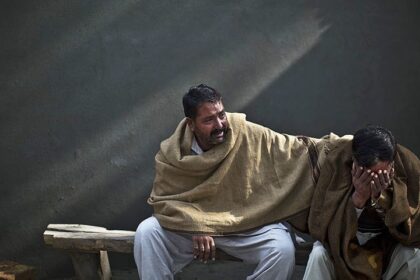The term “hybrid regime,” which was used in academia and media analysis to refer to the military-backed civil governments in Pakistan, has now entered the mainstream political discourse. The current government is no longer hiding behind the facade of civil supremacy; it is openly acknowledging the role of the military establishment in governance, policy decisions, and political engineering. What was once a subject of denial or whispered critique has now been reframed as a matter-of-fact component of the political system.
In his statement regarding Field Marshal’s visit to the US to meet President Trump, the Defence Minister Khawaja Asif called it a success of the current ‘hybrid model of governance’ in Pakistan. The term hybrid model is used to refer to a system of governance in which elected governments function alongside or under the influence of unelected institutions, most notably the military. However, with its rampant suppression of dissent, political victimisation, and violence of human rights violations, the current regime is no longer hybrid; it is overtly authoritarian.
Since the last decade, the political landscape has been marked by the rise in authoritarian trends in many democracies. In Pakistan, it has been widely suspected that a hybrid regime began to take shape after 2008, following the end of General Musharraf’s military rule. This hybrid regime became increasingly authoritarian towards the end of the decade during PTI’s rule. After the ousting of Khan’s government, what followed was a strengthening of military authoritarianism in the country with increased political victimisation and suppression. The state is once again employing its tactics of weaponising detention to crush political parties and persecute their leaders.
Imran Khan has been detained for nearly two years in the Tosha Khana and Al-Qadir Trust case, which was politically motivated according to the UN Working Group on Arbitrary Detention. These cases were also timed to keep him out of the elections in 2024, which were then heavily rigged, and the results were manipulated against his party. The authoritarian regimes use the judiciary and imprisonment to exclude their political opponents. A recent example is the arrest of Ekrem Imamoglu, a major political rival of Erdogan in Türkiye.
The 26th Constitutional Amendment passed by the current regime gives parliament power over judicial appointments. This marks the erosion of judicial independence by giving the executive increased control over the judiciary. Similar tactics were used by Erdogan in Türkiye and Maduro in Venezuela, where a centralised judicial system allowed regimes to suppress dissent and disqualify political opponents. Pakistan risks following the same path with its judiciary now being under the influence of the executive.
Another authoritarian tactic to crush dissent is the militarisation of the justice system. In a recent decision, the Supreme Court has allowed civilians to be tried in military courts in cases of the 9th May riots, reversing a previous decision that called civilian trials in military courts unconstitutional. This decision gives the military unchecked power to persecute political opponents and raises concerns about democracy and justice.
As social media has now become a powerful tool for raising voices, it has changed the dynamics of political resistance and public discourse. Many popular leaders exert significant influence through social media even from behind bars. The regimes are now devising ways to force the spectra of digital platforms back into the bottle through surveillance and censorship. The notion of national security has now been extended to cyberspace. The Official Secrets Act 2023 grants the intelligence agency the power to monitor and criminalise online dissent under the banner of national security. Moreover, the state banned X, a popular digital platform, around the time of the 2024 elections, which has since been lifted in May 2025 during conflict with India.
Though Khan and his party had an immense digital influence, the regime is gradually crushing the online dissent as well. Moreover, social media politics is driven by trends and hashtags, making it difficult to sustain influence once the momentum fades. Without continuous engagement and online presence, the support quickly dissipates. The regimes’ prolonged bans on popular social media platforms are an attempt to silence the narratives through reduced engagement. How successful these tactics are is a matter of time, but so far, the regime has been successful in creating fear among the masses.
The gradual erosion of competitive politics is paving the way for authoritarianism in the country. Democracy is grinding to a halt as the legal systems are manipulated, judicial independence is compromised, and the political opposition is silenced both through physical imprisonment and digital censorship. If the current trajectory persists, we may even lose the current façade of democracy, elections, and the parliamentary system.
















